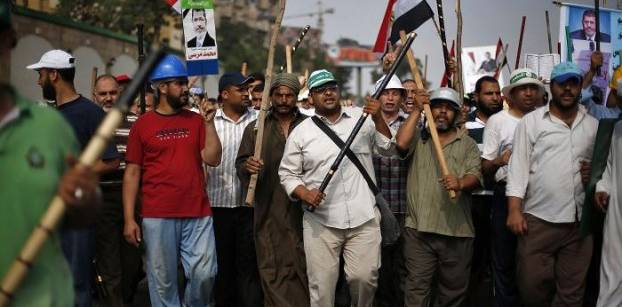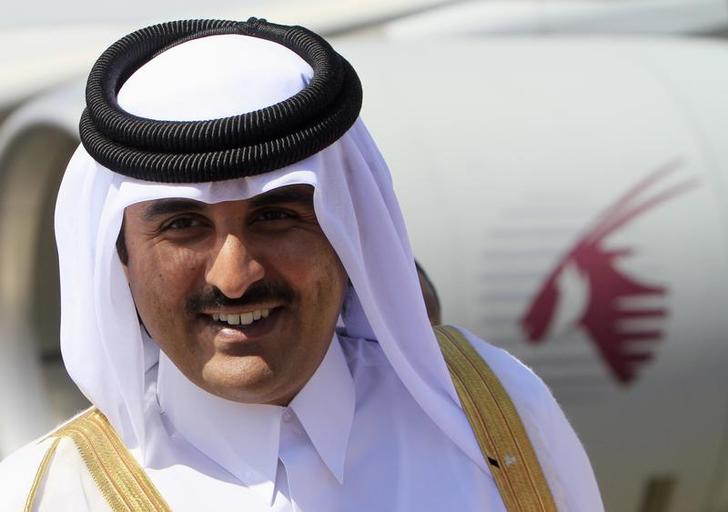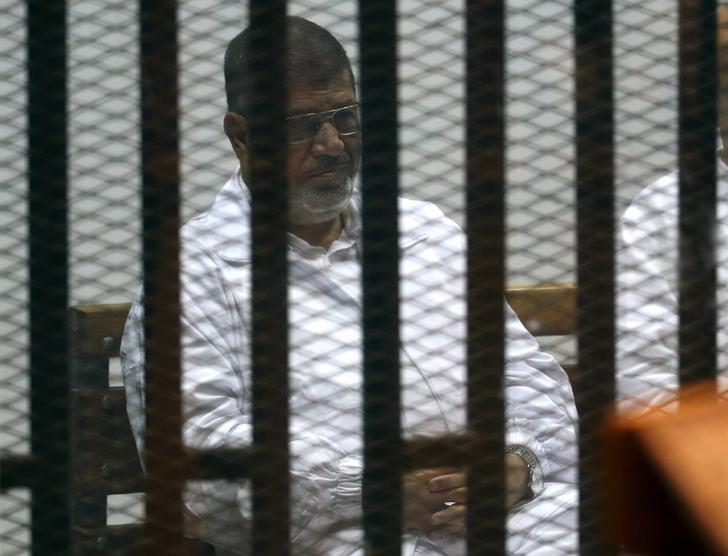Latest NEWS
- Aswat Masriya, the last word
- Roundup of Egypt's press headlines on March 15, 2017
- Roundup of Egypt's press headlines on March 14, 2017
- Former Egyptian President Hosni Mubarak to be released: lawyer
- Roundup of Egypt's press headlines on March 13, 2017
- Egypt's capital set to grow by half a million in 2017
- Egypt's wheat reserves to double with start of harvest -supply min
- Roundup of Egypt's press headlines on March 12, 2017
Court refers 6 defendants to Grand Mufti in 'Qatar espionage' case
Supporters of ousted Egyptian president Mohamed Mursi take part in a protest around the Rabaa al-Adaweya mosque square in Cairo, June 30, 2013. REUTERS/Suhaib Salem
CAIRO, May 7 (Aswat Masriya) – A Cairo criminal court referred on Saturday six defendants to the Grand Mufti in the 'Qatar espionage' case to give his religious opinion after the court handed them death sentences.
The case involves 11 defendants including former president Mohamed Mursi.
The ruling for the rest of the defendants in the case, including Mursi, has been postponed to June 18.
Mursi, who was ousted in July 2013, and the rest of the defendants, including two of his aides, are accused of leaking classified national intelligence to the Qatari intelligence.
The six defendants who received death sentences include a documentary filmmaker Ahmed Afifi, a flight attendant Mohamed Kilany and a teaching assistant in the Misr University for Sciences and Technology Ahmed Ismail.
Asmaa al-Khatb. reporter for RASSD news network, along with Alaa Sablan and Ibrahim Helal, who both work for Qatari Al Jazeera channel, also received death sentences.
Egypt's then top prosecutor, Hisham Barakat, referred all the defendants to court in September of 2014.
Barakat accused them of leaking the intelligence with the help of eight "spies" and in exchange for a million dollars, adding that they were carrying out the instructions of the "terrorist" Muslim Brotherhood international organization.
Since his ouster, Mursi was featured in several trials where he faced an array of charges including other espionage charges, inciting to kill protesters outside the presidential palace during his tenure, insulting the judiciary and escaping prison during the January 2011 uprising.
The former president received a death sentence for escaping Wadi al-Natroun prison, a life sentence in another espionage case and a 20-years prison sentence for inciting and demonstrating violence in the "Presidential Palace Clashes" case.
Mursi is still being tried for insulting the judiciary.
Mursi, who became Egypt's president in June 2012 after the first democratic elections in the country, was eventually ousted at the hands of the military following mass protests against his rule, after a year in power.
Egyptian-Qatari ties have been strained since Mursi's military ouster, with the authorities replacing Mursi's regime viewing Qatar as a Brotherhood sympathizer, using the Qatari Al Jazeera network for this aim.















